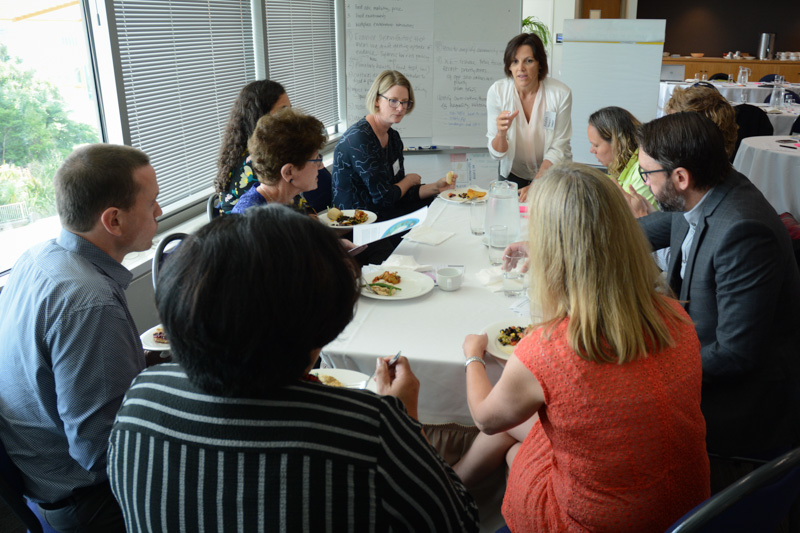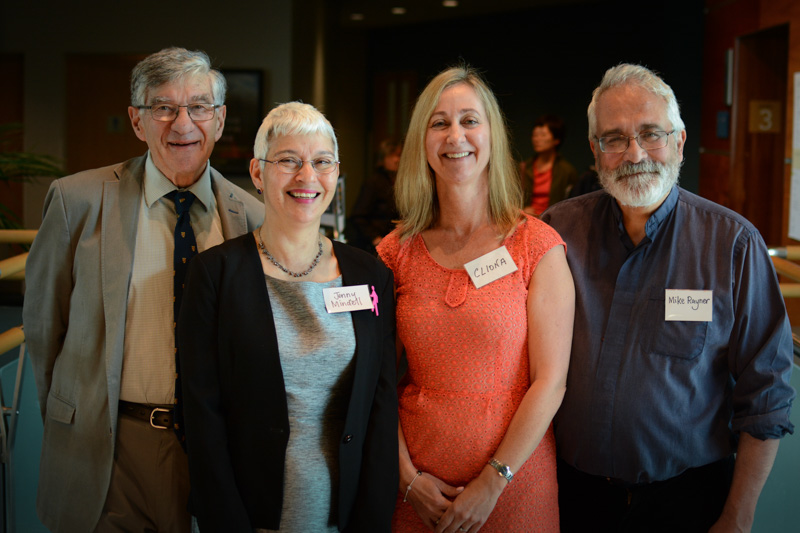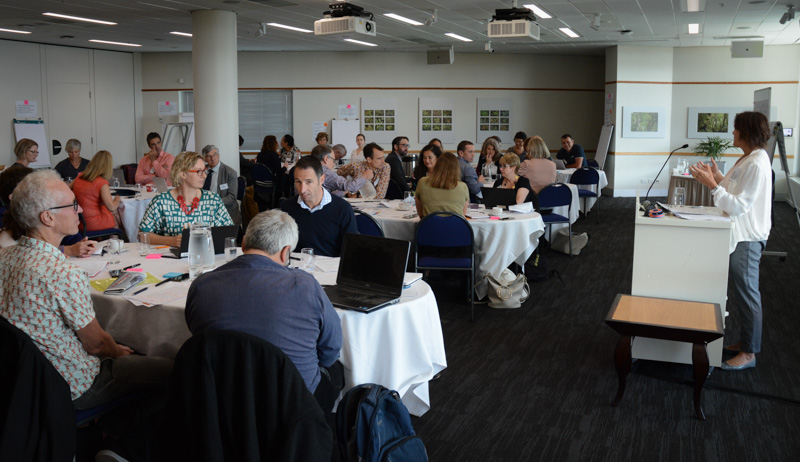Scoping and prioritisation workshop: Healthy Food and Physical Activity Environments
22 March 2019

Researchers and policy makers from around New Zealand gathered at a Healthier Lives workshop in Wellington on 22 March 2019 to scope and prioritise research aimed at improving New Zealand’s food and physical activity environments for the benefit of our whole population. The 35 workshop attendees included representatives from the Ministries of Health and Primary Industries, the Chief Science Adviser for the Ministry of Transport, two British experts, researchers from seven New Zealand research institutions, and colleagues from two other National Science Challenges with closely aligned interests (A Better Start; Building Better Homes Towns and Cities).
The workshop generated animated and wide-ranging discussions. One participant commented that “there are some fantastic minds together in this room – working collaboratively.” Another said “This was a very caring, safe but also stimulating environment – people were challenging and challenged.” Someone else described the process as “difficult, messy and busy but very helpful”. Others noted that it was important for scientists and policy makers to get out of their own “work bubble” and work collaboratively in this way.

Prior to the workshop attendees received a stocktake of relevant international and New Zealand research and an accompanying thinkpiece, commissioned by Healthier Lives and written by Dr Sarah Gerritsen from the University of Auckland. The thinkpiece proposed six priority research areas and, at the outset of the workshop, participants were asked if they agreed with these. By a majority vote it was decided to revise the priorities. Director of Public Health, Dr Caroline McElnay, commented when summing up the day “we’ve just participated in a co-design process”.
The agreed priority research areas were:
- Healthy and sustainable food supply
- Food affordability and accessibility
- Natural experiments and scaling up
- Monitoring food and physical activity environments
- How to get evidence-based policy adopted
- Māori and Pasifika community interactions with environments
- Healthier and more sustainable physical activity environments

“Although some of these areas were different to what we had anticipated, this is a great result – identification of key priority areas that matter and can make a difference for those who are end-users of this research,” said Healthier Lives Deputy Director, Professor Cliona Ni Mhurchu.
The workshop identified a plethora of potential research topics, which Healthier Lives will now consider. Some consistent themes also emerged. There was a strong desire to know more about what factors lead to better design and adoption of evidence-based policies, and how to move away from a top-down approach by harnessing the power of community voices. There was a sense of urgency about improving the sustainability of food and activity environments for the benefit of both human and planetary health.
Healthier Lives Director Professor Jim Mann noted that Healthier Lives has a responsibility to provide leadership for New Zealand.
“Even if the Challenge itself can’t take on all the research ideas, we are helping to identify a research agenda that others can contribute to. Increasing equitable health outcomes will be of central importance to any research direction we take from here,” Professor Mann said.
A full report is available: Healthy food and physical activity environments workshop report (PDF 2 MB)

Originally published 12 April 2019.


